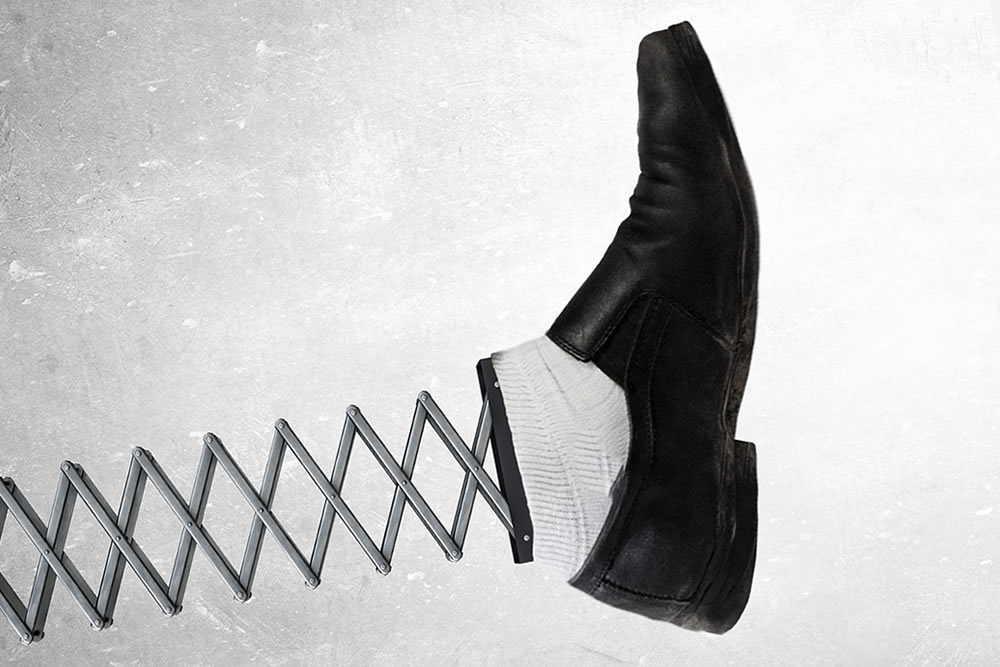Rational Emotive Behavior Therapy (REBT) enjoys personifying clusters of self-defeating thoughts, like our “discomfort dodger” and “comfort junkie,” in order to quickly remind ourselves that our momentary upset and/or self-defeating behavior is coming from the irrational self-talk that has just been activated.
In this post I will expose some comfort junkie thinking and the emotional/behavioral damage it does; damage that not only impairs self-mastery (self-discipline and self-control), but which often negatively alters the course of one’s life and career choices.
High Discomfort Tolerance (HDT)
In addition to Unconditional Self Acceptance (USA) referenced in blog post 4/29/2022, REBT also promotes High Discomfort Tolerance (HDT). In this modern age of comfort and ease, HDT is a seemingly scarce emotional commodity. HDT was even anathema to “the culture of comfort” in 1950 when Dr. Abraham Low, founder of Recovery, Inc., passionately implored his “nervous” patients to have “the will to bear discomfort.”
We can find ourselves needing (vs. wanting) to avoid discomfort (immediate or anticipated) and/or pursuing short-term pleasure (vs. happiness) despite long-term pain (self-defeating consequences).
So let me now introduce you to the twin nemeses who unrelentingly try to seduce you away from your real happiness and life success—the dastardly duo of your Comfort Junkie and Discomfort Dodger. Actually, you already know them very well, maybe too well, if you identify with any of the following problems:
Why do I lie?
Most likely you’re not a pathological liar but, rather, an emotional coward who has been hijacked by the dastardly duo to think, in an exposed and vulnerable moment, that the shame of wrongdoing/inadequacy or another’s anticipated upset is too much to bear, that you can’t stand it, and must feel better in the moment. The lie thus dodges momentary discomfort but, like a boomerang, ensures future negative consequences.
Why do I procrastinate?
Putting-off, delaying, stalling, avoiding, shirking, “forgetting,” waiting until the last minute, and living by the motto: “never do anything (unpleasant) today that you can put off until tomorrow” isn’t exactly a formula for success. Demanding perfection and fearing failure can be paralyzing thanks to the dastardly duo of “needing” comfort and avoiding discomfort.
Why do I misuse substances?
Copping a high and getting a buzz in a recreational sense is one thing, but “needing” to feel better and escape emotional discomfort is quite another. It is the later that characterizes misuse and is often referred to as self-medicating.
So who is to blame once again? Of course, the familiar mental residents: your Comfort Junkie and Discomfort Dodger.
Why do I act like a worm?
Passivity/non-assertiveness, conflict avoidance, saying “yes” when you really want to say “no,” going along to get along, staying out of the spotlight, self-consciousness and social awkwardness, codependent approval-seeking, feeling responsible for other’s feelings, making self-limiting career choices to avoid the discomfort of, for example, making decisions, mistakes or speeches.
At the heart of all these self-defeating behaviors is—you guessed it—the dastardly duo of avoiding discomfort and “needing” comfort.
Take the Twin Nemeses down like a Super Hero!
So, how do you defeat this dastardly duo? Here is the strategy:
Analyze your Comfort Junkie
Your Comfort Junkie/Discomfort Dodger has a voracious appetite for pleasure, satisfaction, and bliss, but is severely allergic to the negative emotions of anxiety, frustration and shame.
Rather than tolerate some discomfort, the dastardly duo head for the exits via self-defeating escapist behavior. Sometimes just anticipating discomfort is enough to break the glass and pull the alarm, dreading the mere possibility of emotional discomfort. Practicing this avoidance becomes habit that seeps into character over time.
You can stand discomfort
How do I know? You are reading this post which means you have been able to stand every lousy thing and all manner of negative emotions from the time of your birth to this present moment!
Anxiety, frustration and shame are unpleasant feelings, but feelings aren’t facts. They lie and deceive. They signal danger when there is no real harm. Just a false feeling alarm that can be tolerated and not acted upon. And remember Nietzsche’s industrial strength aphorism that what doesn’t kill us makes us stronger!
Kick your Comfort Junkie to the curb
Just learn and apply REBT (of course it’s harder than it seems) to reduce emotional discomfort such as anxiety, frustration, and shame. This will mostly put the dastardly duo out of business and out of your behavior.
Make sure your new rational self talk includes:
10 Ways To Kick My Comfort Junkie
- It’s undesirable but not awful (100% bad) if someone thinks badly of me or is upset with me right now.
- Instead of usually blaming myself I will accept myself as a worthwhile but Fallible Human Being (FHB).
- I can change and improve my behavior while still practicing my Unconditional Self Acceptance (USA).
- I don’t “need” a drink, get high, watch porn, procrastinate, lie, or shrink from assertive self-expression.
- I don’t “have to” be in the mood or feel like doing something unpleasant (like cleaning-out the garage).
- It is more important to do than to do (perfectly) well; remember “Perfect is the enemy of Good.” Voltaire
- I really can stand what I merely don’t like, including my uncomfortable emotions and states of mind.
- Life is hard and often unfair. It’s designed that way! I can accept difficulty, discomfort, disappointment.
- My character has been corrupted by avoiding the discomfort I can both tolerate and reduce via REBT.
- I am aware that the dastardly duo is always waiting for me to choose feeling better over doing better.
TAKEAWAY:
High Discomfort Tolerance → Self Discipline → Rational Living → Happiness





